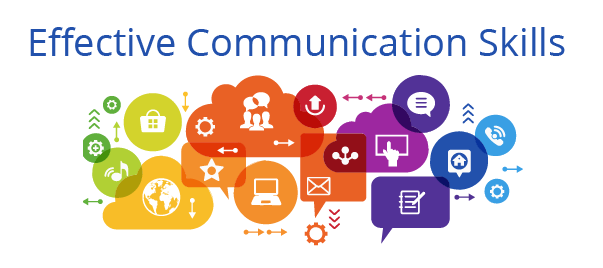Effective communication skills are essential for salespeople if achieving the sales forecast is a priority. So why should sales managers invest time and energy in investigating their effectiveness and commitment to improving the skills of each salesperson in their team?
With over 50 years of experience in sales and having coached dozens of salespeople, I have witnessed it all: the good, the bad, and the just plain ugly.
In my early days, I rescued sales that were unquestionably going to be lost, and I found that all these salespeople had learned was to rely on my closing skills.
I learned the power of pre-and post-sales call conferences, where I would ask before we made a sales call what our purpose was and what we were trying to achieve in the call.
When the sales call was over, I reviewed it, seeking an understanding from the salesperson of what they thought we achieved compared to what we wanted.
After every sales call, the salesperson better understands the prospective customer, and that new perspective allows them to replay the call, taking into account this new perspective.
So, after each sales call, I also asked, given this new perspective, if we could walk back into that sales call and do it all over again, what would they say or do differently?
I stopped rescuing sales. Instead, I allowed sales to be lost—well, not necessarily lost; let’s just say delayed—because the lessons learned by the salespeople and this new perspective always allowed us a further opportunity.
As I have consistently said, “A coach doesn’t run onto the field and make a tackle for his payer. A coach looks at how the player can make a tackle more effectively and then coaches that technique.
Communication skills, what a salesperson said, how the prospective customer responded/reacted, and how the salesperson adjusted are things that can only be identified by being in the room as a passive observer, as a coach who is looking to determine what needs to be improved and their sets about trying to improve those skills.
Every time two people try to communicate, many things can happen. Here are several possible messages that can be sent when one person speaks to another:
- What the speaker intends to say.
- What the speaker says.
- What the speaker is understood to have said.
- What the hearer wants to hear.
- What the hearer hears.
These simple communication points are often the difference between a sale being lost, stalled, or won. They happen when the salesperson is too busy thinking about what they need to say or show next to appreciate what was lost in communication.
This is where the Sales Manager acting as a passive observer earns their salt. It’s where the sales coach identifies the Macro Selling Skills that need to be improved. It’s the “Compound Effect“, the 1% improvement built on top of all the other 1% improvements.
Communication skills include but are not limited to the following:
- Verbal (face to face)
- Verbal (phone)
- Witten (proposals, emails, messaging, etc)
- Social
- Presentations
- Video Conferencing

Of these, written communication is the most important simply because, unlike everything else, it remains a permanent measure of a person’s communication skills.
So, let’s start with the best definition of communication.
The act or process of using words, sounds, signs, or behaviours to express or exchange information or to express your ideas, thoughts, feelings, etc., to someone else. Formal: a message given to someone, such as a letter, telephone call, etc., is a way of sending information to people using technology.
By definition, communication embraces a great number of engagement options with prospective customers, so you will have to spend time on face-to-face calls, in Zoom meetings, listening to telephone conversations, and reviewing all written communications.
In many ways, good writing is good writing regardless of its particular purpose, but the following characteristics are essential for business writing.
- Clear Purpose
- Clarity
- Awareness of Audience
- Appropriate Tone
- Attention to Form
- Story Telling
English Professors and Sales Managers will assess the writing skills of a salesperson differently, and we need to be mindful of it. Our prospective customers are rarely English Professors but simply people who want and or need the product/service we are selling.
The primary objective of all salespeople is to have a strong understanding of the prospect’s requirements to ensure they are included effectively in any communication.
Secondly, a strong understanding of what benefits the prospect would gain from using the product/service will ensure they focus on these benefits and confirm their importance.
The best way to measure the six points I have listed above is to rank each salesperson between 1 and 10, with 10 being the highest; no one ever gets a 10 out of 10.
While this method of assessing a salesperson’s communication is subjective, it is better than not evaluating their skill.
Other Items Covered: What Are Micro Selling Skills
- Active Listening Skills
- Communication Skills
- Negotiation Skills
- Persuasive Skills
- Problem-Solving Skills
- Presentation Skills
- Self-Motivating Skills
- Story Telling Skills

